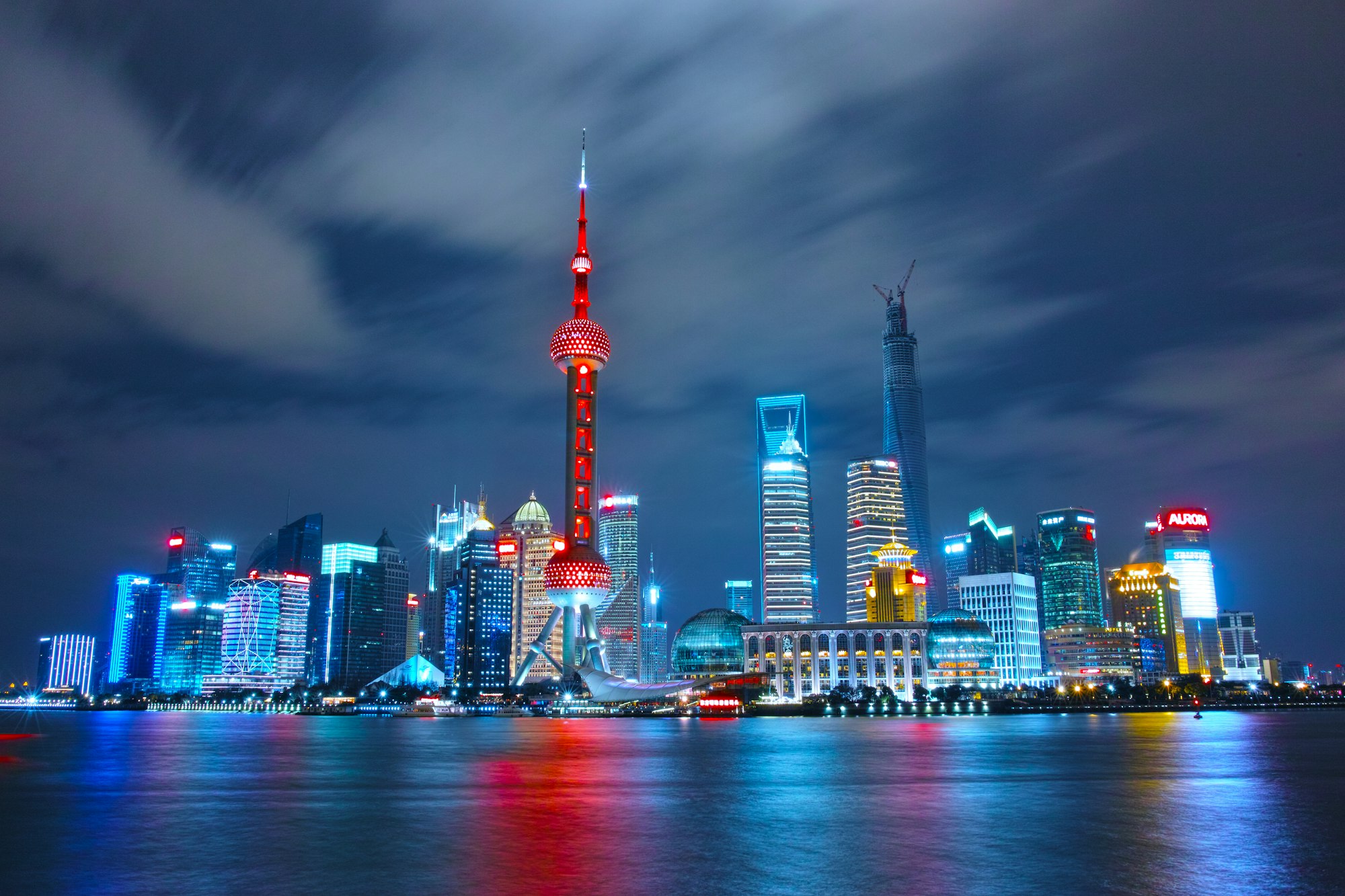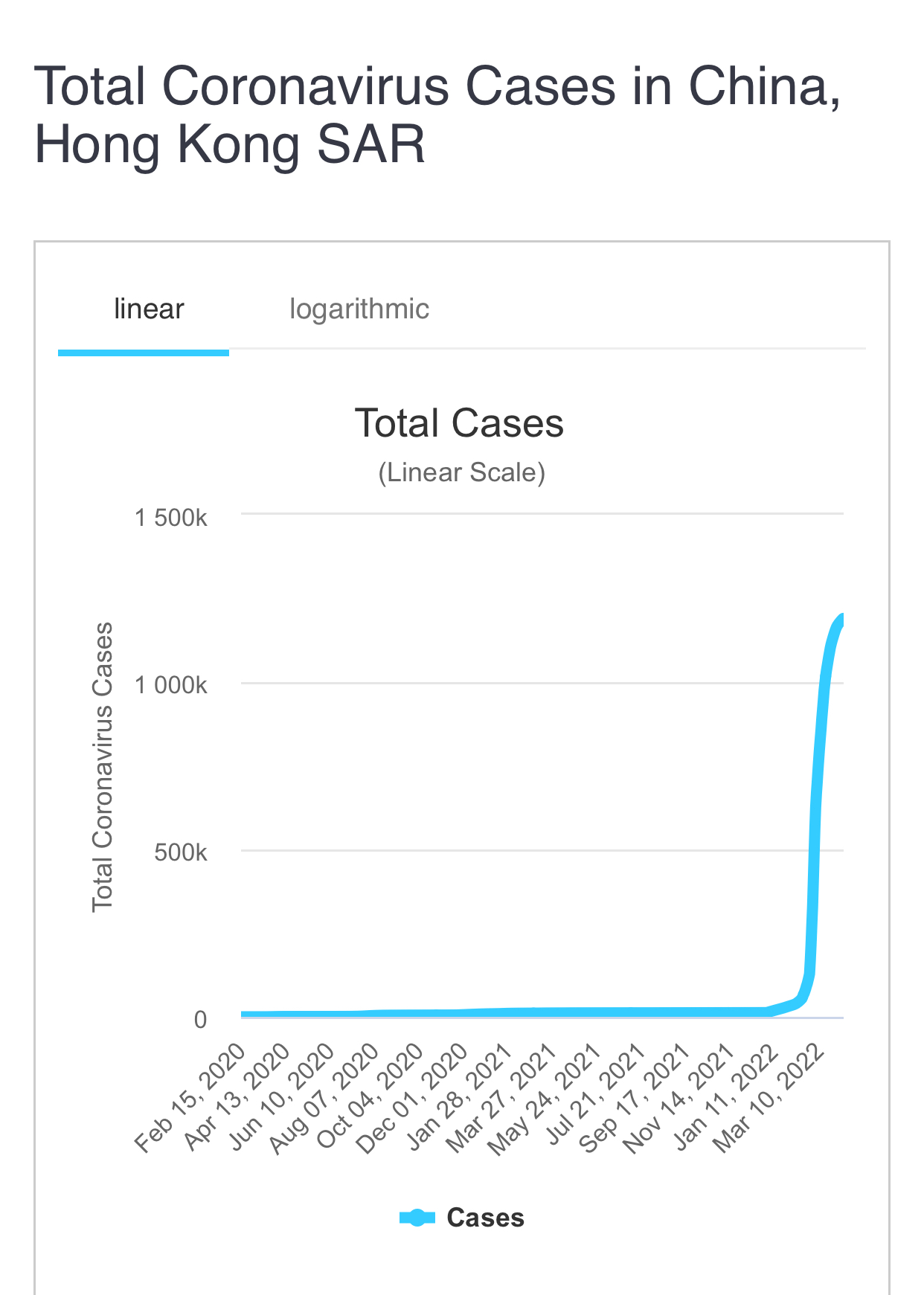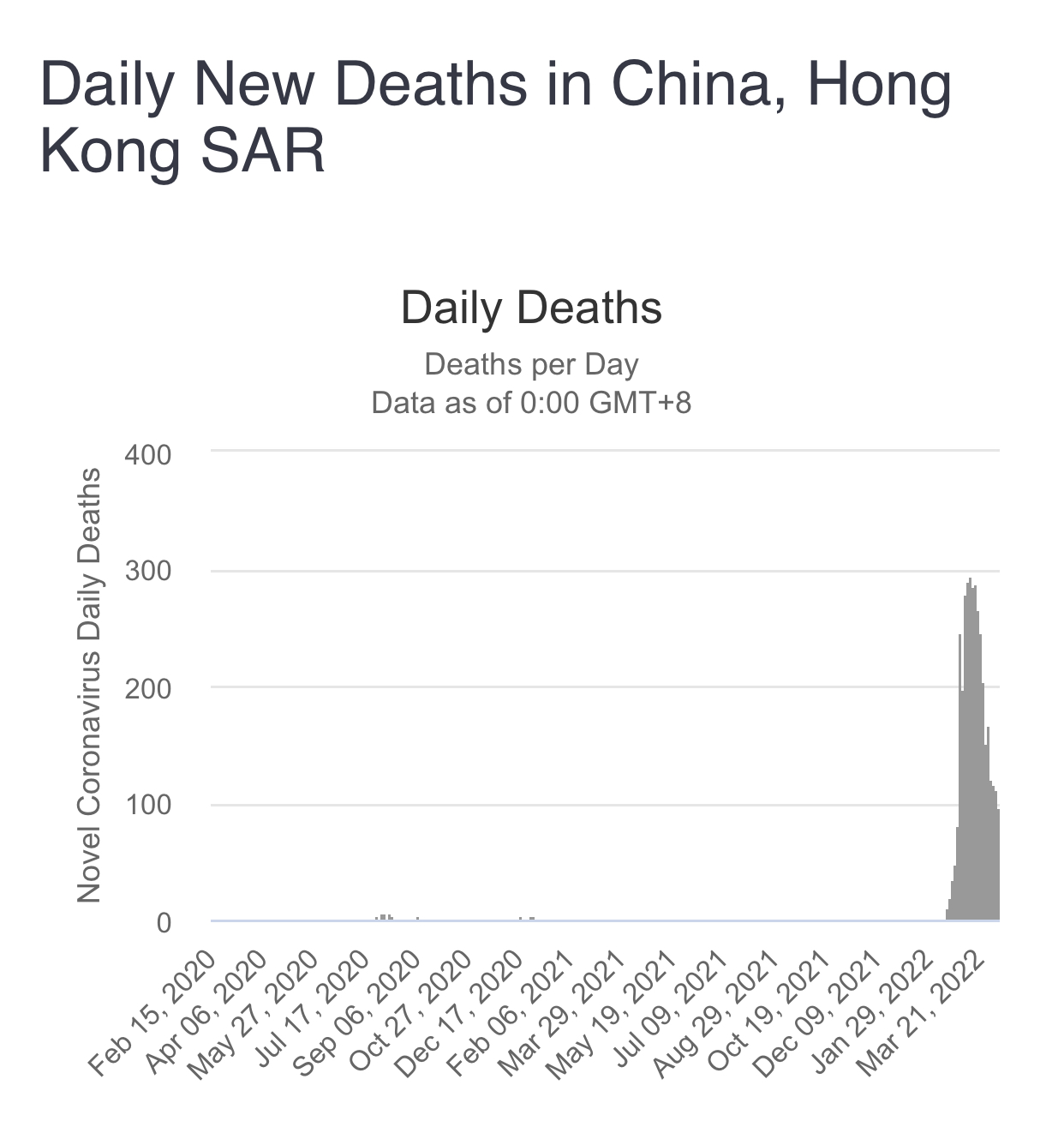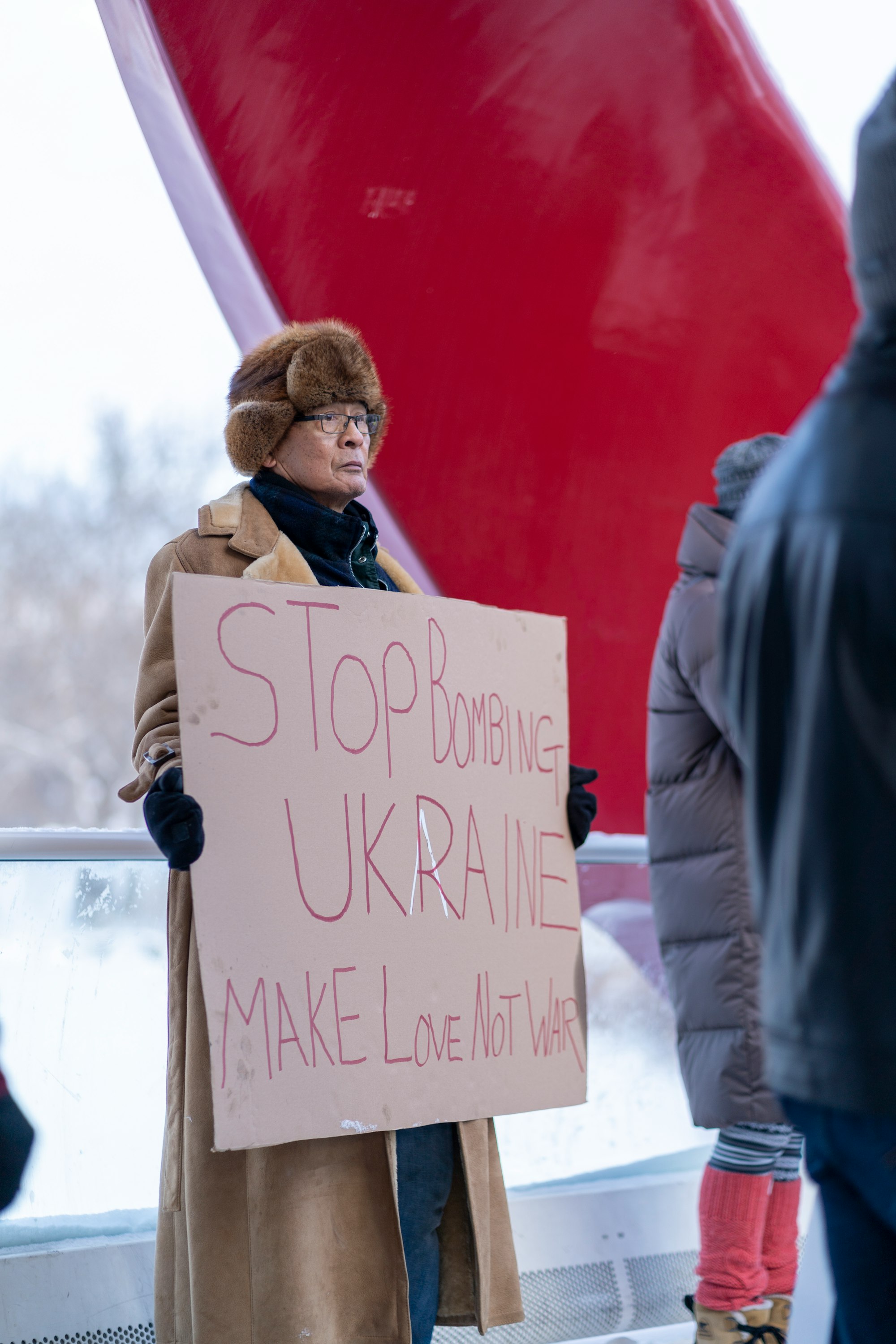Shanghai is in lockdown, as are many other locations across China, and this time lockdowns are causing deep social unrest — China's reliance on homegrown vaccines may be the problem.
During the early days of Covid in late January and February 2020, Westerners looked upon lockdowns in Wuhan, China, in disbelief. It felt like watching a dystopian science fiction movie, and then Covid spread and lockdowns were imposed across the world and we all experienced life in a strange period in history.
That was then; now we enjoy vaccines, and even as Omicron spreads, the rate of deaths and hospitalisation as a proportion of infected people stays mercifully low.
If another round of lockdowns were imposed in Europe or the US, how might we respond? The public might be less willing to comply this time, especially perhaps, in 'post-party-gate' Britain.
Then again, weren't lockdowns only ever meant to be a short-term remedy? Right from day one, many people felt lockdowns were a necessary price to pay whilst we awaited a vaccine. An indefinite lockdown isn't viable; the public was only ever willing to accept such an extreme policy if it was temporary.

But now China is in lockdown, again.
And as this eerie video demonstrates, it is not popular. It almost feels like watching a dystopian science fiction movie!
Meanwhile, in China: https://t.co/8Cp6b6FN4M
— Noah Smith 🐇🇺🇦 (@Noahpinion) April 9, 2022
As every English schoolchild knows (or at least did, when the writer was a schoolchild), in England in 1381, the peasants were revolting. Well, in China in 2022, the public is not happy.
Wow. And this is what we’re seeing. This is what got out. https://t.co/1nK7elL1Sh
— Danielle DiMartino Booth (@DiMartinoBooth) April 9, 2022
Problem with the older population
Currently, death and hospitalisation rates from Covid in China are still quite low, although the story in Hong Kong is more alarming. See these two charts taken from Worldometer.


In China, vaccines have been predominantly administered to the working population, with the older population protected by China's zero-tolerance approach to Covid.
According to the FT, no less than 130 million Chinese aged 60 or over have not yet been vaccinated or at least haven't received the triple vaccination
But there is a deeper problem. In China, conspiracy theories abound, especially concerning Western mRNA vaccines such as the Pfizer vaccine.
Furthermore, vaccines that have been applied are Chinese, which use more traditional vaccine approaches — like administering a mild form of the disease.
Studies show that mRNA is more effective at the first dose and Chinese vaccines only provide cover comparable to the vaccines we have seen in the West by the third jab.
So what has got wrong?
China has responded angrily to claims that its vaccine policy is to blame.
Chinese President Xi Jinping said: "Against the background of the COVID-19 pandemic that rages across the world, we have put first the health of all participants, adhered to the policy of preventing the coronavirus from re-entering the country to cause a new epidemic, and strictly implemented the prevention and control measures."
He added: "As some foreign athletes have said, if there was a gold medal for responding to the pandemic, then China deserves it."
However, that is so far. Whether the Chinese people will tolerate another extended lockdown, especially given reports of food shortages, is open to question.
Maybe they will tolerate it for now, but seething resentment may result. That won't do President Xi's long term prospects any good — after all, fear of social unrest is one of the biggest motivations for economic policy in China.
Inward looking
Is the real problem that under Xi, China has become more inward-looking?
As this piece in the New York Times argued: "Under Xi Jinping, China's top leader, the country has turned more inward, promoting self-reliance and championing development in areas like semiconductors and other technology. The delay in recognising a foreign mRNA vaccine now appears to be a part of that deeply political exercise."
Or, as Saad B. Omer (director of the Yale Institute for Global Health and a Professor at the Yale University schools of medicine and public health argued: "This is still a global crisis. Much of the world remains unvaccinated, and that undermines control of the pandemic anywhere. US and Chinese relations have deteriorated since COVID, and the two countries have worked separately on increasing the global vaccine supply. But it is in both of their interests to collaborate to control this pandemic. American vaccine technology combined with Chinese manufacturing capacity can be a potent mix to increase global vaccine supply of highly effective vaccines."
Antiglobalisation is a bigger threat than realised
In these times, we hear so often about countries becoming more self-sufficient, or the era of nationalism, of less reliance on international trade. As the Chinese vaccine policy appears to show, there are massive dangers in this.
A reversal of globalisation creates several major threats, including
- Falling living standards
- Climate change issues, because to defeat climate change we need global cooperation
- Peace, trade is a bringer of peace, and right now, the fragility of peace is more obvious than ever. Globalisation is not fool-proof against conflict; after all, Russia was trading with the rest of the world before it invaded Ukraine, but it helps, and one of the lessons of WW2 is that inward-looking politics can lead to global conflict.

China itself has deep economic problems. A few years ago, people talked about the BRICs (Brazil, Russia, India and China) or the BRICS (the same as above, plus South Africa). There was a narrative that these four/five nations were on an inexorable trajectory to economic dominance. That narrative is no longer credible. Brazil's economy has experienced an awful decade, Russia (current crisis aside) has massive demographic problems with a death rate greatly exceeding the birth rate), and in China, economic growth is stalling, productive growth is weak, and it is far from certain China will move past the middle-income trap that has plagued so many emerging markets in the past.

China has always been a major contributor to humanity — consider the printing press, pasta or gunpowder (not that gunpowder was necessarily a good thing.) Today, Chinese investment in renewables has led to a massive reduction in cost and provides hope we can defeat climate change.
China needs the rest of the world — the big mistake it made a couple of centuries ago was to look down on the rest of the world and Europe in particular. Its isolationism cost China dearly. It can not afford to make that mistake again.






Related News
The tyranny of rightwing snowflakes and far-right wokism
Mar 14, 2023
Unconscious bias 1930s Germany and the BBC
Mar 14, 2023
Microsoft CEO says AI can reduce inequality
Jan 24, 2023